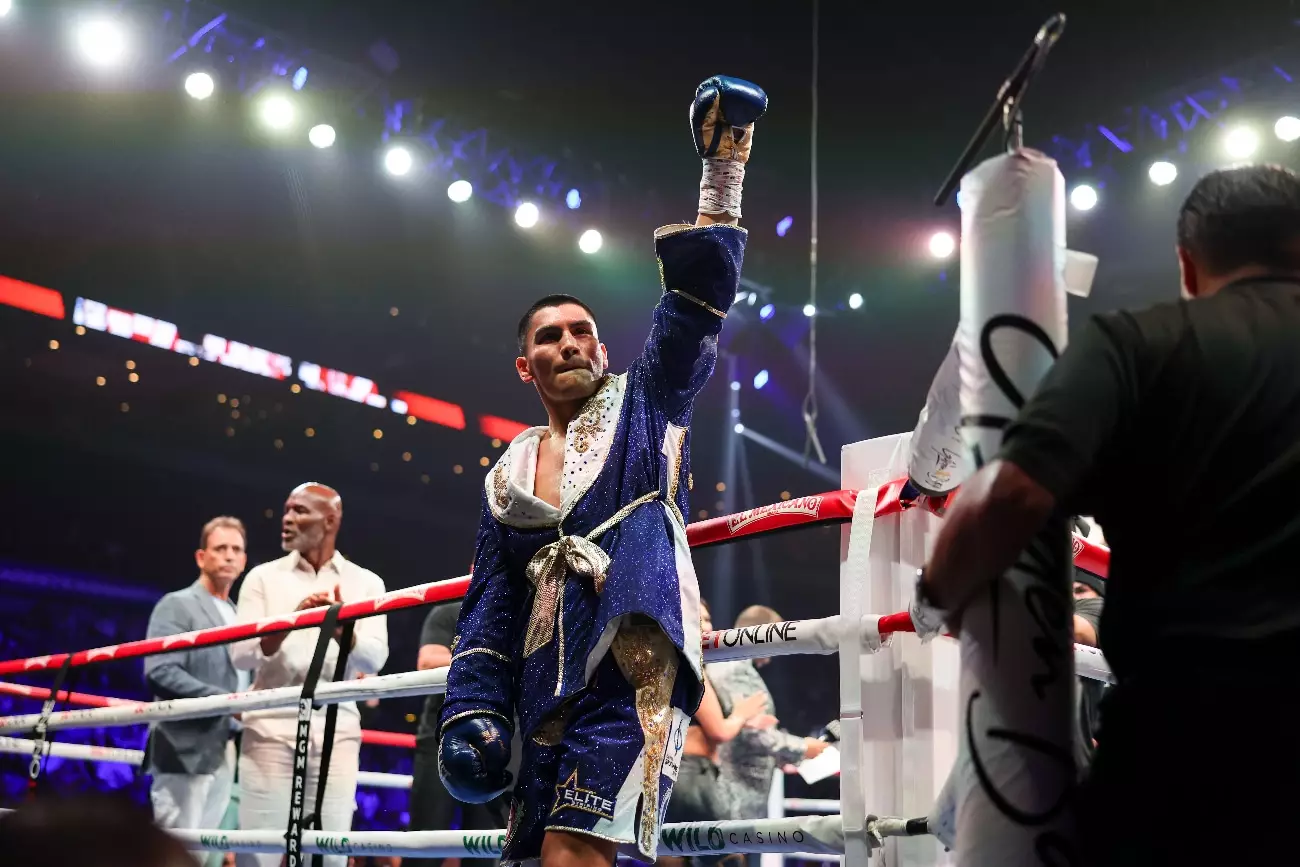The anticipated matchup between WBC interim junior middleweight champion Vergil Ortiz Jr. and rising star Jaron “Boots” Ennis has sadly been called off, sparking discussions about the complexities of negotiation in professional boxing. Initially scheduled for February 22nd in Riyadh, Saudi Arabia, the bout generated significant excitement due to the prospects of pitting two unbeaten, explosive fighters against each other. However, the promise of a tantalizing showdown was abruptly extinguished when deal negotiations came to a standstill, with both camps seemingly unable to reach a consensus regarding the terms of the fight.
Reports indicate that a significant sticking point revolved around weight. Ennis reportedly sought to contest the fight at welterweight, 147 pounds, where he has previously competed. This request raised eyebrows given Ortiz’s established stature at junior middleweight, where he has decisively dominated opponents throughout his career, boasting a daunting record of 22 wins with 21 knockouts. The insistence on a lower weight class from Ennis’s camp not only fueled speculation regarding strategy but also cast doubt on their readiness to face Ortiz — a known power puncher capable of debilitating opponents.
This weight debacle raises questions about Ennis’s confidence and fight readiness, especially in light of his recent performance against Karen Chukhadzhian. Critics had noted that Ennis seemed off his game during that encounter, leading to speculation that he may require a distinct tactical edge to challenge a fighter of Ortiz’s caliber effectively. Moving up to 154 pounds for his first fight at that weight would represent a substantial risk, explaining Ennis’s hesitance to step into the ring with Ortiz under such conditions.
The decision not to engage Ortiz also can be viewed from a strategic lens. Ennis’s promoter, Eddie Hearn, has hinted interest in pursuing unification titles at welterweight, which implies a desire to consolidate his position rather than risk it in an uncertain bout at a higher weight class. This pragmatic approach to career management is understandable, especially considering that a defeat would potentially derail Ennis’s rising profile. Thus, avoiding Ortiz — whom many consider a formidable contender in any weight class — might be perceived as a wise career strategy rather than mere evasion.
While fight enthusiasts lament the loss of this high-stakes match, the boxing world now faces the task of finding a suitable opponent for Ortiz ahead of the February 22nd event. The involvement of the Saudi Arabian promotion team, coupled with the anticipated mega card, adds layers of complexity to the situation, as they are left scrambling to fill a gap in the lineup that was to feature such an enticing duel.
As the dust settles on this unfortunate fallout, both fighters will need to recalibrate their strategies moving forward. Ortiz must secure an alternative opponent to maintain his momentum, while Ennis will aim to assert his legacy within the welterweight division. It’s a reminder of the intricacies and unpredictability of boxing, where ambitions clash with realities, and negotiations can make or break opportunities.
The boxing community will eagerly await further developments, hoping the allure of Ortiz vs. Ennis is merely postponed, rather than permanently shelved. Meanwhile, both fighters must capitalize on the opportunities ahead, navigating their paths with both tactical wisdom and fierce ambition.

